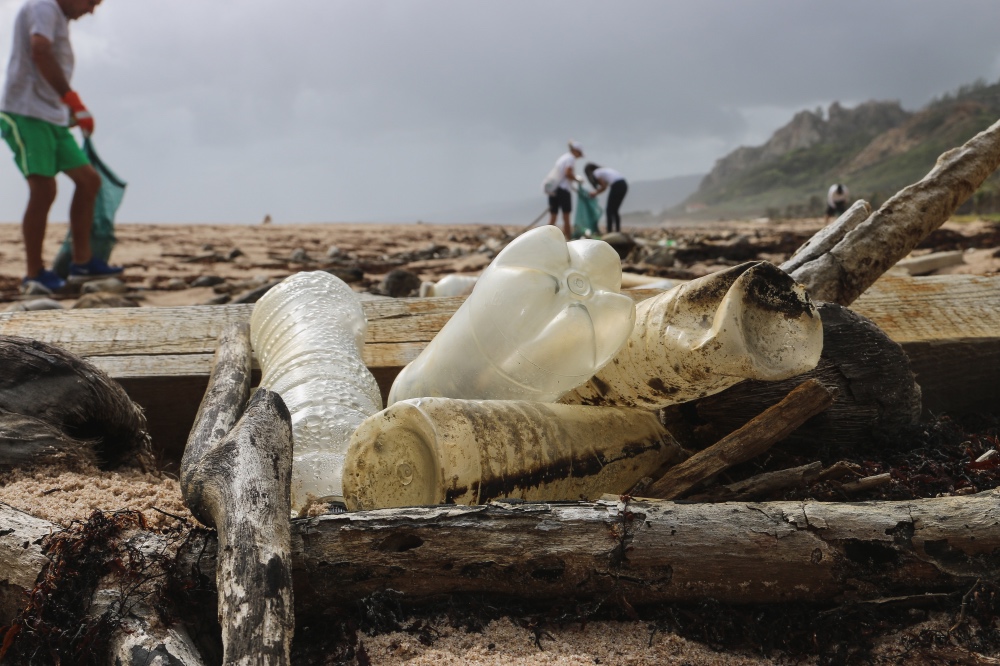Rome, Italy
Thomson Reuters Foundation
Four of the world’s largest consumer brands are contributing to planet-heating emissions by using throwaway plastic to package everything from soft drinks and snacks to shampoo, said a report published on Tuesday.
Coca-Cola, PepsiCo, Nestle and Unilever are responsible for half a million tonnes of plastic pollution annually in the six developing countries examined in the report released by international aid agency Tearfund.
That is enough to cover 83 football pitches in a day, it said, calling the situation “morally indefensible”.

Plastic bottles on a beach in Barbados in an undated image. PICTURE: Brian Yurasits/Unsplash
Of the waste plastic, 60 per cent is then burned by consumers on street corners, open dumps and in backyards, producing annual greenhouse gas emissions equivalent to 4.6 million tonnes of carbon dioxide – the same as “two million cars on UK roads a year”, the charity added.
Petrochemicals derived from oil and gas, which are carbon-rich fossil fuels, form the building blocks for plastic products.
Globally, greenhouse gases in the atmosphere hit a new record high in 2018, reinforcing damaging weather patterns, the World Meteorological Organization said in November.
An earlier 2019 report from UK-based Tearfund found that up to a million people die every year in poor countries from illnesses caused by discarded waste and plastic pollution.
Of the four multinational companies in the new study, Coca-Cola is “by far the worst polluter”, responsible for emissions greater than the other three combined, as about eight billion of its bottles are burned or dumped each year in the six countries, Tearfund said.
In a statement, Coca-Cola said it was working to increase the use of returnable and refillable packaging, citing examples in five of the countries in the report – Brazil, India, Mexico, Nigeria and the Philippines – but did not mention China.
The company was aiming for every plastic bottle to contain “at least 50 per cent recycled plastic by 2030”, it said, adding that the Tearfund report “raises some serious issues”.
PepsiCo, identified as the second-worst polluter, said it had set a target to decrease “virgin plastic content” across its beverage business by 35 per cent by 2025.
Nestle, the world’s biggest food company, said it was committed to making 100 per cent of its packaging recyclable or reusable by 2025.
Tearfund, however, said the brands should be doing more, adding that only consumer goods giant Unilever had committed to reduce its total plastic use, which the company said would amount to a decrease of more than 100,000 tonnes by 2025.
Unilever also said in a statement it planned to help collect and process more plastic packaging than it sells by 2025.




